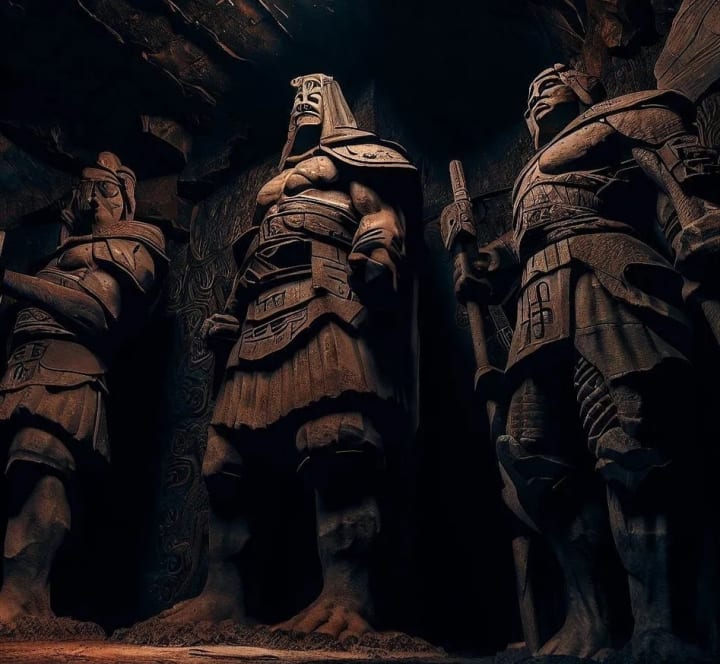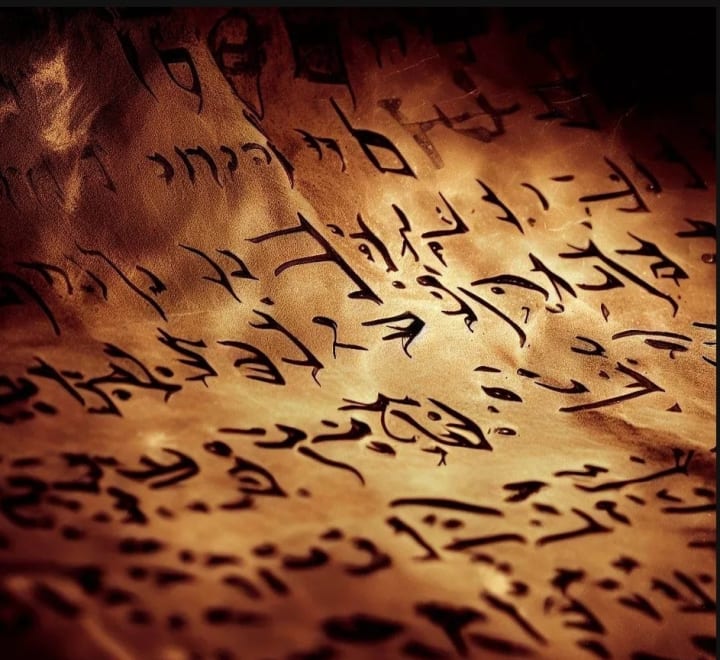The Mythical Father of the Giants
the Nephilim were considered mighty warriors and men of renown but also violent and wicked.

The ancient city of Hebron, nestled in the southern West Bank, boasts a history that stretches back millennia. It stands as one of the oldest cities in the world, a testament to human resilience and continuity. Moreover, it holds a sacred place in the hearts of Jews, Christians, and Muslims alike, a testament to its enduring spiritual significance.
Who was Arba, and what is the origin of his name? How did he become associated with Hebron, and what role did he play in the biblical narrative? In this article, we will delve into the enigmatic and captivating story of Arba, the mythical father of the giants, a tale that is sure to pique your curiosity.
The Name Kiryat-Arba
The first mention of Arba in the Bible is related to the name Hebron. In several passages, Hebron is called Kiryat-Arba, which means "the city of Arba" or "the city of four." For example, in Joshua 14:15, we read:
The name of Hebron was formerly Kiryat-Arba, the great man among the giants. The same name appears in Joshua 15:13 and 21:11, where Arba is described as "the father of the giants" or "the father of Anak." Anak was the ancestor of a race of giants called the Anakim, who inhabited the land of Canaan before the Israelites conquered it. The Israelites feared the Anakim for their size and strength, as reported by the spies who scouted the land in Numbers 13:28-33. The people living on the land are strong, and the cities are fortified and large. Moreover, we saw the descendants of Anak there. … We saw the Nephilim there (the sons of Anak are part of the Nephilim), and we became like grasshoppers in our own sight, and so we were in their sight.

According to Genesis 6:4, the Nephilim were another group of giants who lived before and after the flood. They were the offspring of "the sons of God" and "the daughters of men," a mysterious phrase interpreted in various ways by different traditions. Some scholars suggest that the Nephilim were fallen angels or divine beings who corrupted humanity, while others propose that they were human rulers or heroes who claimed divine status. In any case, the Nephilim were considered mighty warriors and men of renown but also violent and wicked. They were among the reasons why God decided to destroy the earth with a flood, sparing only Noah and his family. However, some Nephilim survived or reappeared after the flood, as Genesis 6:4 and Numbers 13:33 indicated.
The Origin of Arba
How did Arba become linked to Hebron and the Giants? His name and identity have several possible explanations.
One possibility is that Arba was a historical person who lived in Hebron and was either a giant or a leader of a clan of giants. He may have been a powerful king or chieftain who ruled over a large territory and built a fortified city. He may have also been related to Anak or his descendants by blood or alliance. His name may have been derived from a word meaning "four," perhaps indicating his rank or number of sons.

Another possibility is that Arba was not a person but a place name that was later personified. Kiryat-Arba may have originally meant "the city of four," about four quarters or districts within the city or four hills or mountains surrounding it. Alternatively, it may have meant "the city of four gods" or "the city of four seasons," reflecting some religious or cultural significance. Later, when Hebron became associated with the giants, the name Kiryat-Arba was reinterpreted as "the city of Arba," and Arba was invented as a mythical ancestor or patron.
A third possibility is that Arba was a mythical figure who was never a historical person or a place name but instead a symbol or an archetype. He may have represented an ancient tradition or legend about the origin of the giants or a cosmic force or principle that gave rise to them. His name may have been derived from a word meaning "great" or "mighty," reflecting his status as a primordial being or a progenitor of heroes. He may have also been connected to other ancient Near Eastern myths about giants or divine-human hybrids, such as the Mesopotamian alkali (sages) or Gilgamesh (king).
The Role of Arba in the Biblical Narrative
Arba's role in the biblical narrative, particularly in the book of Joshua, is significant. He represents the challenge and resistance the Israelites faced upon entering Canaan. In contrast to Caleb, one of the faithful spies who trusted God and was rewarded with the inheritance of Hebron, Arba symbolizes the opposition the Israelites had to overcome. This article will delve into the biblical narrative, exploring the role of Arba and his significance in the story.
Caleb, the son of Jephunneh, was one of the twelve spies Moses sent to scout the land of Canaan. He and Joshua were the only ones who brought back a favorable report and encouraged the people to trust God and take possession of the land. The other ten spies spread fear and doubt among the people, saying that the land was full of giants and that they were like grasshoppers in comparison. As a result, God punished the Israelites by making them wander in the wilderness for forty years until that generation died out.
Only Caleb and Joshua survived and entered the land with the next generation, led by Joshua. Caleb asked Joshua to give him Hebron as his inheritance, as God had promised him. He said: Now, give me this hill country about which Yhwh spoke on that day, for you heard that Anakim was there, with great fortified cities; perhaps Yhwh will be with me, and I will drive them out as Yhwh has spoken.
Joshua agreed and gave Caleb Hebron, also known as Kiryat-Arba. Caleb then drove out the three sons of Anak from Hebron: Sheshai, Ahiman, and Talmai. These were the same giants he had seen forty years earlier when he spied out the land. He did not fear or shrink from them but trusted God and overcame them. Thus, Caleb became Hebron's new owner and ruler, replacing Arba and his sons. He also became a model of faith and courage for all Israelites, showing them how to conquer the land and inherit God's promises. He also became an ancestor of David, who was born in Bethlehem but later moved to Hebron and became its king. David ruled from Hebron for seven years before moving to Jerusalem and uniting all of Israel under his throne.
Arba: A Legacy of Mystery and Controversy
Arba remains a mysterious and controversial figure in biblical history and archaeology. His name and identity are shrouded in uncertainty and speculation. His connection to Hebron and the giants is intriguing and puzzling. His role in the biblical narrative is significant and symbolic. Arba is a reminder of the complexity and diversity of the ancient world, where different cultures and traditions coexisted and interacted. He also reflects on today's challenges and opportunities as we seek to understand and appreciate our past, present, and future.
About the Creator
Cosmic Secrets
I specialize in writing and researching about history and ufology If you enjoy my work and would like to support me, you can visit my Patreon page. You will gain access to exclusive, content that I create.






Comments
There are no comments for this story
Be the first to respond and start the conversation.